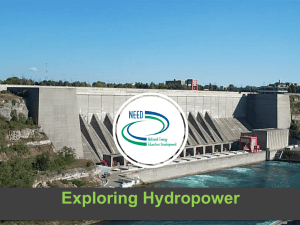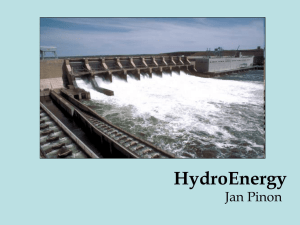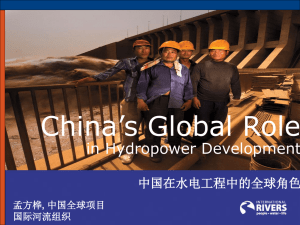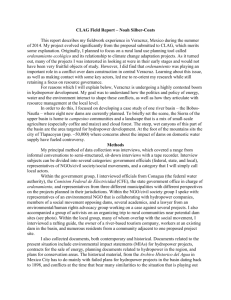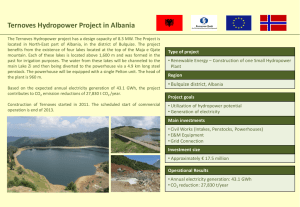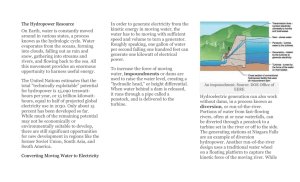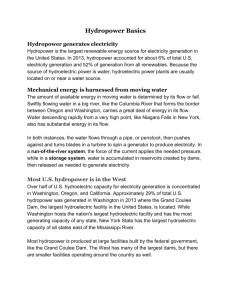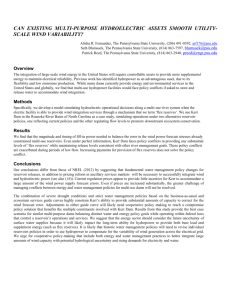Hydropower Dams
advertisement
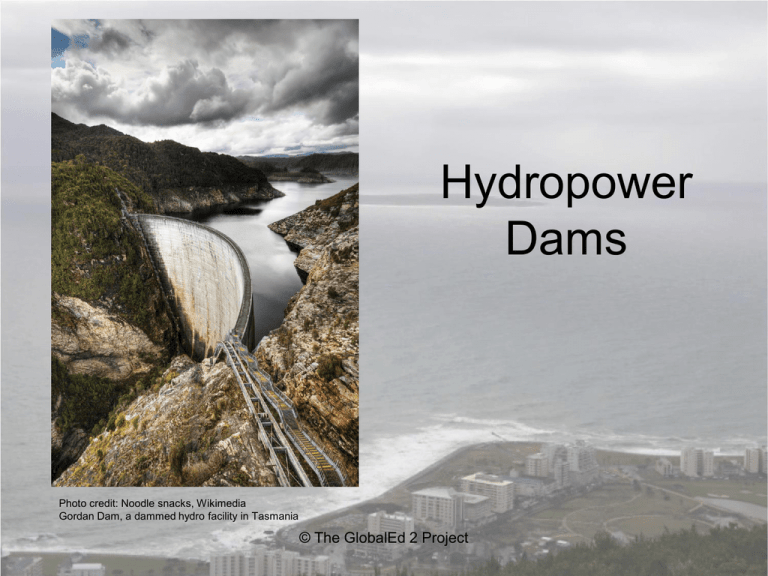
Hydropower Dams Photo credit: Noodle snacks, Wikimedia Gordan Dam, a dammed hydro facility in Tasmania © The GlobalEd 2 Project Purpose of Dams • To store water to make up for the up and down changes in river flow or in demand for water and energy. • To raise the level of the water upstream to enable water to be diverted into a canal. © The GlobalEd 2 Project Essential Questions 1. What is a hydropower dam? 2. How is a hydropower dam useful? 3. Can hydropower dams help prevent flooding? © The GlobalEd 2 Project Enduring Understandings 1. Hydropower dams, also known as impoundment facilities, are powered by kinetic energy. 2. Hydropower dams are used to create a barrier between upstream and downstream waters. 3. Hydropower dams can help with flood control. © The GlobalEd 2 Project The Hydropower Dam • Conventional hydro turbines are typically installed either within or next to dams. The kinetic energy of flowing water spins a turbine, producing mechanical energy that is converted into electricity by a generator. © The GlobalEd 2 Project The Hydropower Dam (Continuation) • The function of a hydropower dam is to increase the elevation (head) between water surfaces and thus the amount of kinetic energy that can be converted into electricity as water flows or cascades through its turbines. • Releases of water stored in the reservoir behind a dam can be timed to boost hydro generation during periods of high demand. © The GlobalEd 2 Project Benefits of Hydropower Dams • One of the country’s most important renewable energy resources • Reliable • Produces little solid wastes • Emits essentially none of the potentially harmful atmospheric emissions, such as nitrogen and sulfur oxides and greenhouse gases. • Can provide sources for water supply, flood control and recreation © The GlobalEd 2 Project A Major Risk of Hydropower Dams • Hydropower dams can greatly impact ecosystems: They can take over terrestrial habitats, forever changing and damaging aquatic habitats. © The GlobalEd 2 Project
